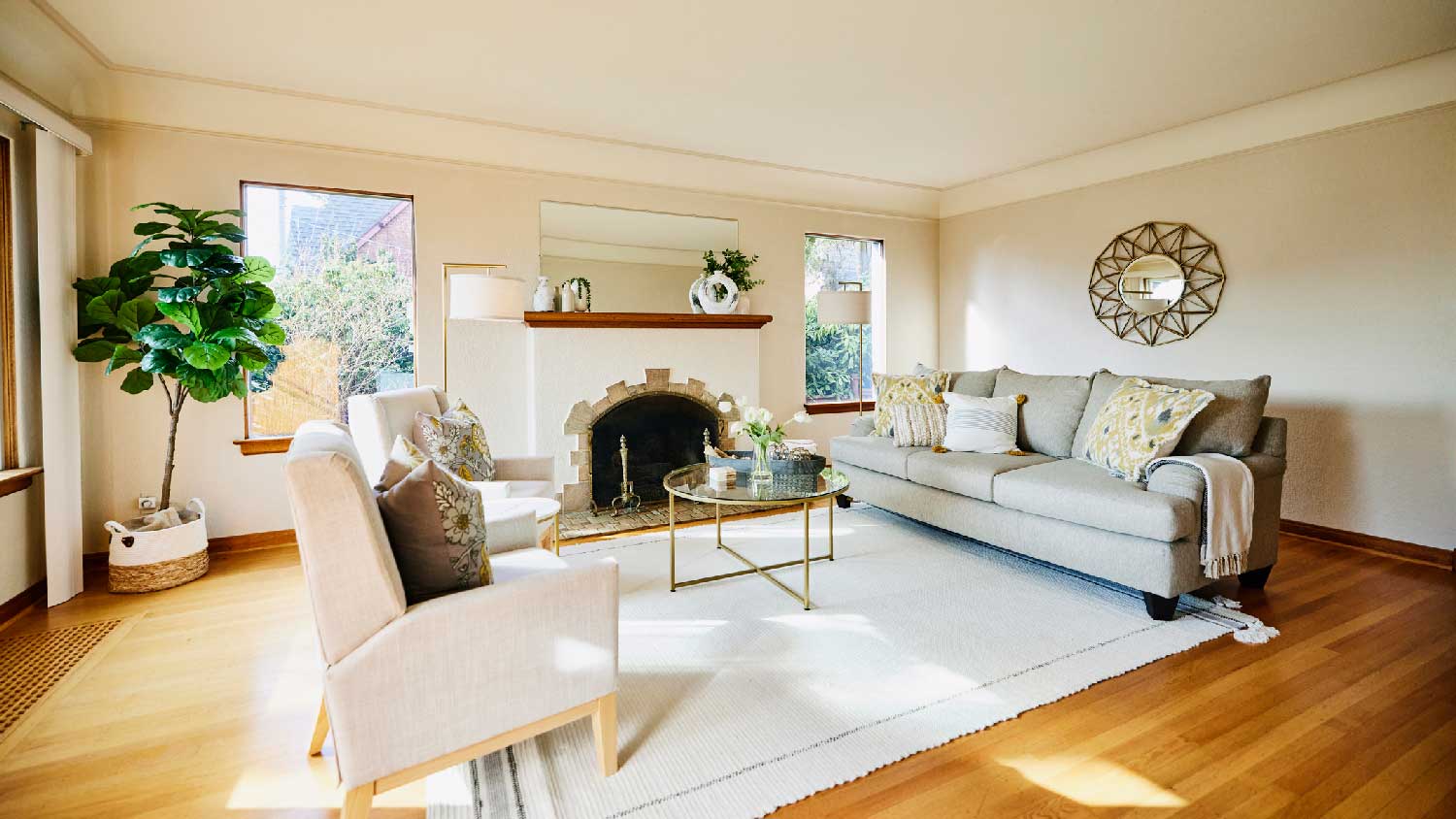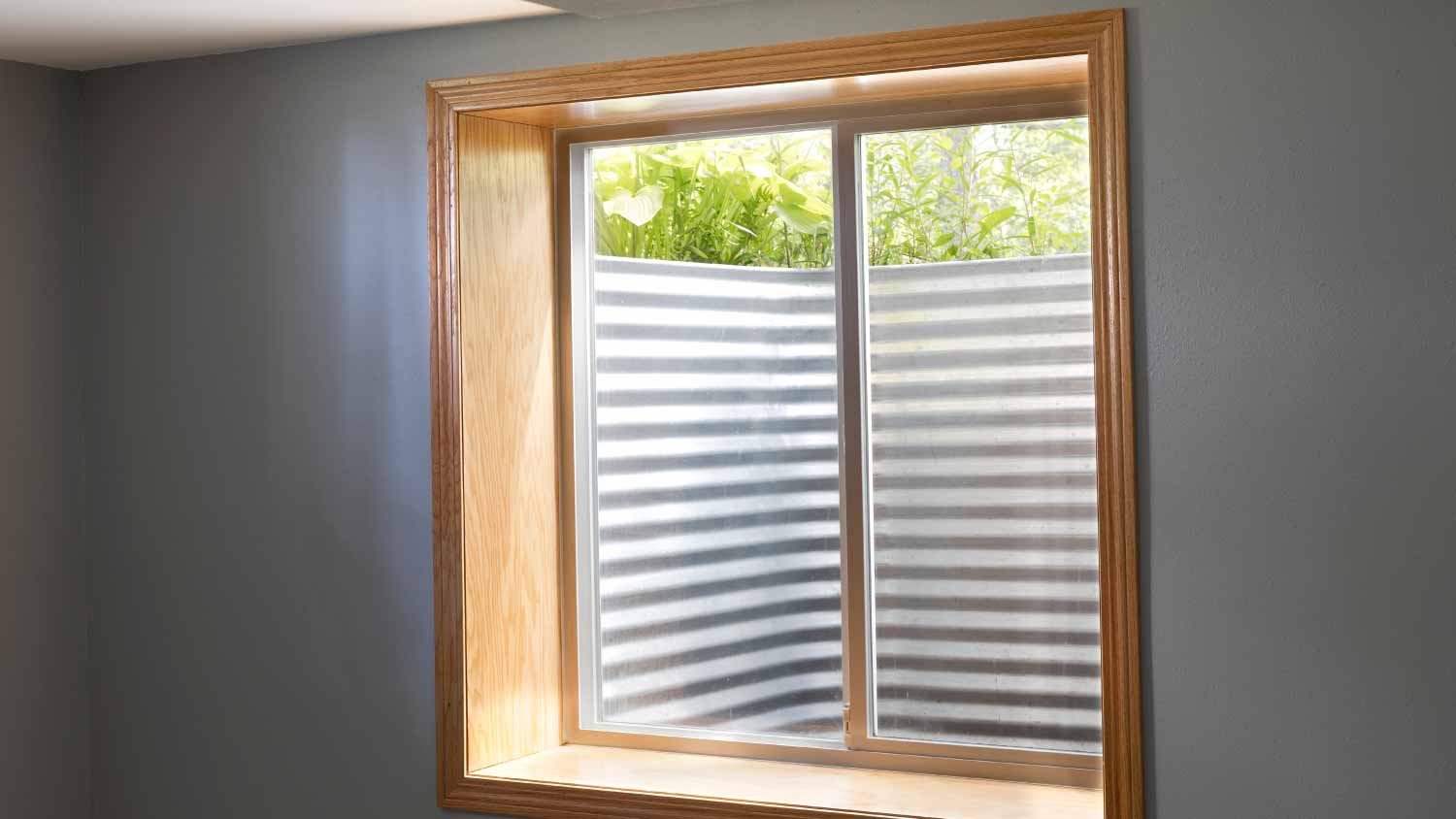How Much Do Double-Hung Windows Cost? [2025 Data]
The average U.S. homeowner spends about $800 to install a double-hung window. Depending on window location, material, size, and type, most spend between $325 and $1,275.
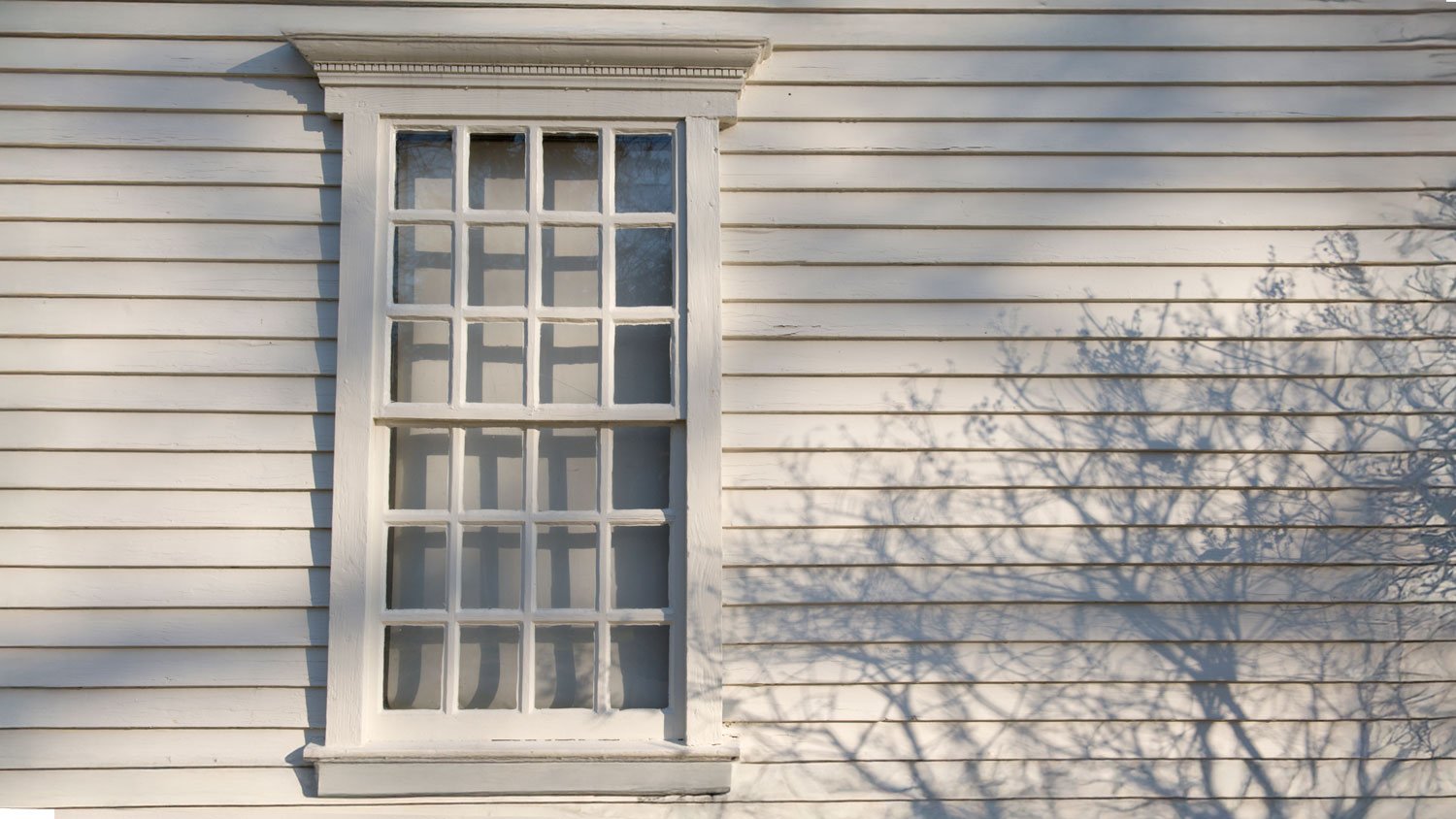

The average double-hung window cost is $800, though homeowners can spend between $250 and $5,550. Double-hung windows have sashes that open on both sides of the window, providing better ventilation than single-hung windows. Many factors can influence the cost of double-hung windows, but with a little planning, you can make an accurate estimate for your project. Use this guide to help you budget.
Double-Hung Windows Cost Factors
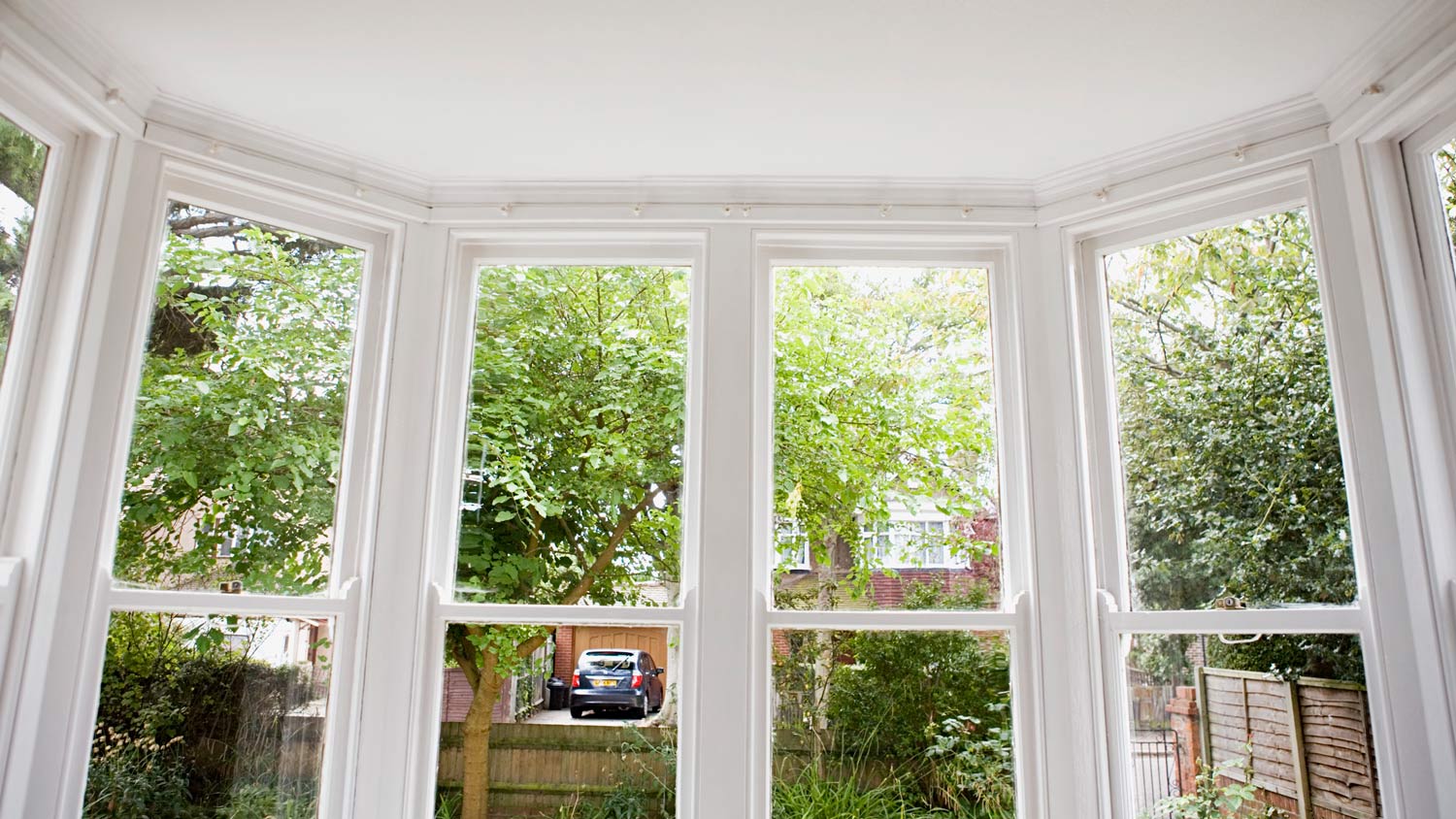
When installing double-hung windows, new need to factor in the type of glass, style, size, labor, prep work, and location to get an accurate cost estimate.
Type of Glass
If you already have window frames for your double-hung windows and only need to replace the glass, this could save you on your installation. Depending on the type of glass you choose, you could spend anywhere from $150 to $3,000 per window on window glass costs.
Float windows are the most budget-friendly type of glass, while Smart, krypton-filled, and low-E windows come in at the higher end of the price range. Generally speaking, the more energy-efficient and durable the glass, the higher the cost.
| Glass Type | Average Cost |
|---|---|
| Argon-filled | $400–$900 |
| Float | $150–$400 |
| Krypton-filled | $500–$1,200 |
| Laminated | $300–$600 |
| Low-E | $300–$1,000 |
| Obscured/frosted | $300–$800 |
| Smart | $150–$3,000 |
| Tempered | $200–$600 |
Style
Double-hung window parts come in single-panel, double-panel, and triple-panel sizes. For small windows that are only one-panel wide, you’ll spend between $250 and $1,100 per window. Three-panel-wide windows cost significantly more, ranging from $1,100 to $3,700 apiece, while twin window panels fall in the middle at $1,000 to $2,400 each.
| Double-Hung Window Type | Average Cost |
|---|---|
| 1-wide | $250–$1,100 |
| 2-wide | $1,000–$2,400 |
| 3-wide | $1,100–$3,700 |
Size
Double-hung windows cost anywhere from $40 to $140 per square foot. The greater the size, the higher the price. Standard window sizes typically cost less than custom windows, so if you’re installing custom double-hung windows, anticipate spending toward the higher end of the price range. The average window size is 24-by-36, meaning most homeowners spend between $250 and $850 per window, not including labor. Here are a few common window prices by size:
| Window Size (inches) | Total Square Feet | Price Range |
|---|---|---|
| 24 x 36 | 6 | $250–$850 |
| 24 x 48 | 8 | $325–$1,100 |
| 36 x 48 | 12 | $475–$1,700 |
| 36 x 72 | 18 | $725–$2,500 |
| 60 x 60 | 25 | $1,000–$3,500 |
| 48 x 78 | 26 | $1,050–$3,700 |
Labor
Hiring a window contractor to install your double-hung windows costs around 30% to 50% of the cost of the windows. Since double-hung windows cost between $250 and $3,700 each, you're looking at labor fees ranging from $75 to $1,850 per window. For the standard window size of 24-by-36, you’ll spend around $325 to $1,275.
Not all window contractors charge by the window, however. Some have an hourly rate between $30 and $100 an hour depending on local window company rates.
Prep
Hiring a pro to remove existing windows and dispose of them costs between $10 and $20 per window. Calculate the number of windows you're replacing and don't forget to include these fees in your expenses if you plan on working with a window installer.
Location
Windows that are hard to reach can cost more to install, as your pro will either factor in the project scope if they charge by project or take longer to install the double-hung windows if charging by the hour. If you have windows on the second floor of your home, anticipate higher costs overall to account for the additional complexity.
Double-Hung Window Cost by Frame Material
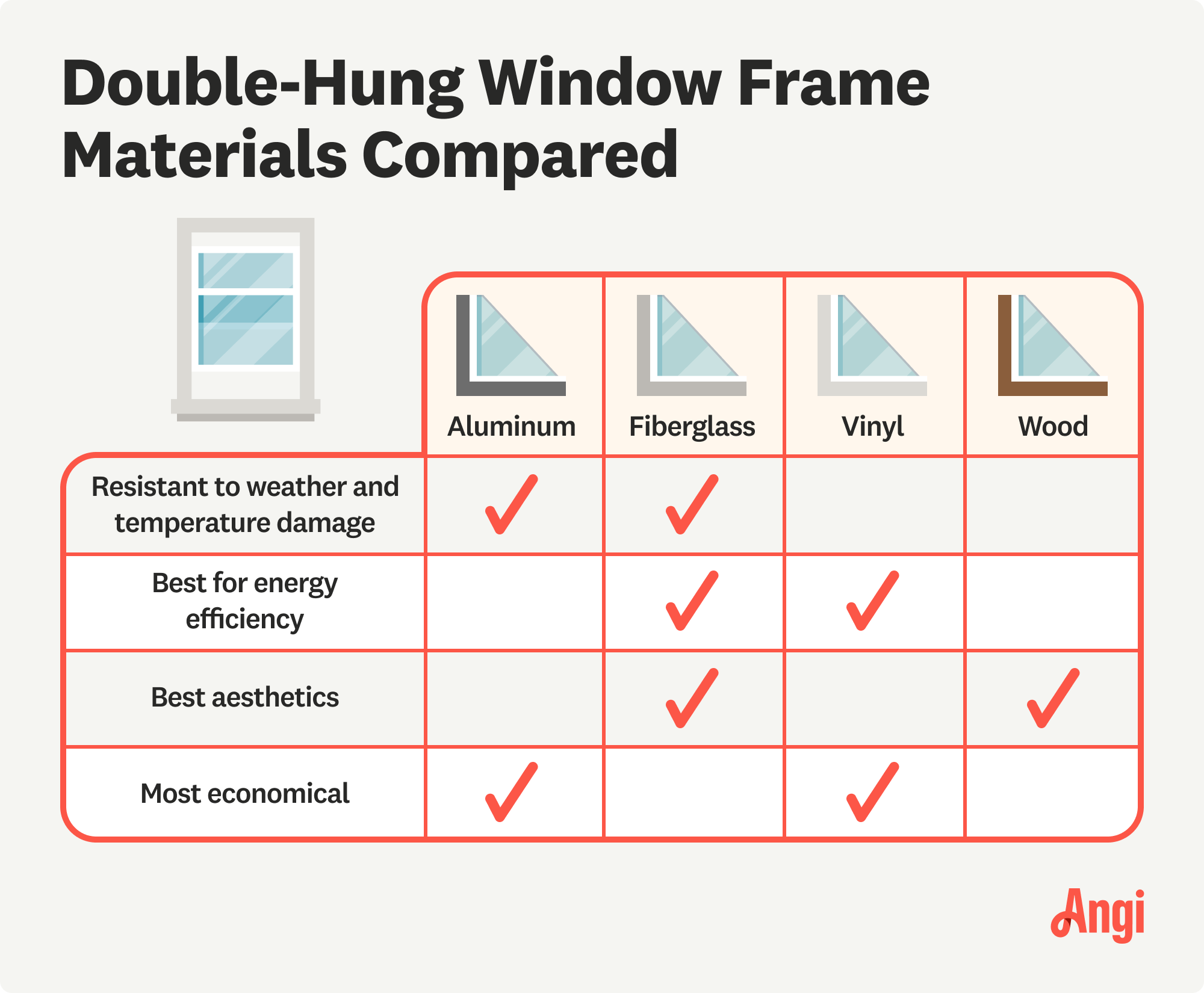
The type of window frame you choose for your double-hung windows impacts the total cost of your project. Vinyl windows have the lowest up-front cost, while aluminum windows cost the least overall. Fiberglass and wood window frames have the highest prices.
| Frame Material | Average Cost (per Square Foot) |
|---|---|
| Aluminum | $400–$750 |
| Fiberglass | $325–$3,700 |
| Vinyl | $250–$2,100 |
| Wood | $300–$3,100 |
Aluminum
Aluminum windows are affordable initially, costing between $400 and $750 each. They offer a modern look and have resistance to temperature and weather damage. At the same time, aluminum is weak against impact damage, offers less insulation than other window frame materials, and shows damage more easily.
Fiberglass
The average cost for fiberglass windows ranges from $325 to $3,700 per window. Ask them highest priced window frame material, fiberglass also sports the longest lifespan and handles weather fluctuations better than other materials. However, you’ll pay more for these features and have fewer customization options.
Vinyl
Double-hung vinyl windows cost between $250 and $2,100 apiece. Compared to aluminum, vinyl windows are another economical option that also offers high energy-efficiency and low maintenance. The downside is that vinyl window frames may not be everyone’s cup of tea aesthetics-wise. They’re also susceptible to discoloration from UV damage.
Wood
Wood windows cost between $300 and $3,100 each. If you're going for a natural look, wood frames for double-hung windows are an attractive option. Keep in mind that you'll need to invest in more maintenance than you would other materials due to wood's susceptibility to pests and moisture.
Double-Hung Windows Ongoing Costs
After the insulation, you'll still have a couple of ongoing costs to factor in for your double-hung windows, including maintenance and repair costs.
Maintenance
Cleaning windows costs between $4 and $15 per window, or $80 to $150 per hour when you hire a pro. Some double-hung windows require less maintenance than others. For instance, if you choose natural wood, you’ll need to factor in increased window maintenance costs to keep your windows in tip-top shape.
Repairs
Window repair costs range from $175 to $650 per window depending on the extent of the damage and repair type. Broken glass costs the most, while broken screens cost the least to repair. If your repair costs more than 50% of the cost of installing new windows, consider replacing your windows entirely. The cost to replace windows is anywhere between $3,400 and $11,800 based on how many windows need replacing.
DIY Double-Hung Windows vs. Hiring a Pro
With the average cost to hire a pro ranging from 30% to 50%, you'll save between $75 and $1,850 in installation costs for every double-hung window you install. Saving this much may sound tempting, especially since all you'll need is a power drill, ladder, caulk gun, and caulk, which costs between $200 and $700 on average. But we recommend skipping the DIY for this project.
Installing windows can be dangerous. They’re heavy, contain glass, and must be properly measured and installed for maximum energy savings. If you’re installing double-hung windows on the second floor, you could get injured in the process or have to spend extra on replacement costs if you order the wrong size or damage the windows during the installation. The best and safest way to install double-hung windows is by hiring a local window company.
Cost of Common Double-Hung Windows Add-Ons
During your double-hung window installation, your pro may offer additional installation services related to the project. By bundling multiple projects and checking them off your to-do list, you could save. Here are a few add-ons window installers may offer and their respective costs:
Weatherstripping cost: $130–$435
Hurricane window film cost: $4–$8 per square foot
Hurricane shutters cost: $1,500–$5,900
Window contact sensors cost: $25–$300
Window security bars cost: $725–$1,750
Window treatment costs: $175–$1,900
Tips to Reduce Cost While Installing Double-Hung Windows
Double-hung windows are a big investment, but fortunately, there are ways you can save on the cost of your windows. Check out these tips to start reducing the cost of your window installation.
Choose standard window sizes over custom windows.
Install budget-friendly vinyl or aluminum double-hung windows.
Avoid installing wood window frames.
Go for float glass as opposed to Smart glass or Krypton-filled glass.
Pick a single-pane window over a double- or triple-pane window.
If you’re installing new windows, choose a smaller size.
Choose energy-efficient window upgrades. ENERGY STAR’s Windows & Skylights Tax Credit offers 30% off on the cost of windows for up to $600.
How Angi Gets Its Cost Data
Home is the most important place on earth, which is why Angi has helped more than 150 million homeowners transform their houses into homes they adore. To help homeowners with their next project, Angi provides readers with the most accurate cost data and upholds strict editorial standards. We extensively research project costs to develop the pricing data you see, so you can make the best decisions for you and your home. We rely on reputable sources, including the U.S. Bureau of Labor Statistics, academic journals, market studies, and interviews with industry experts—all to ensure our prices reflect real-world projects.
Want to help us improve our cost data? Send us a recent project quote to costquotes@angi.com. Quotes and personal information will not be shared publicly.
Frequently Asked Questions
Windows last between 15 and 30 years on average. The glass tends to last for around 20 years, while the frames last up to 50 years. This varies by the type of window frame material, glass quality, location, and level of maintenance. Wood frames have the shortest lifespan and require repainting or resealing every couple of years, while fiberglass has one of the longest lifespans.
Whether or not it's worth it to install double-hung windows depends on several key factors. First, double-hung windows cost more than single-hung windows, so if you’re looking to lower costs, you might find it more worthwhile to choose single-hung windows. If you want the lowest maintenance requirements, though, double-hung windows are easier to clean.
Double-hung windows also offer better ventilation, making them a good option for bathrooms and kitchens. Single-hung windows have better energy efficiency than double-hung windows because they have only one moving part.
You can save money by retrofitting new glass into the frame of an existing window. Labor for retrofit replacements is between $100 and $300 each, compared to $150 to $800 for full-frame windows. If your old window frames aren’t structurally sound, replace the entire window to avoid having to replace the frames before the glass.
